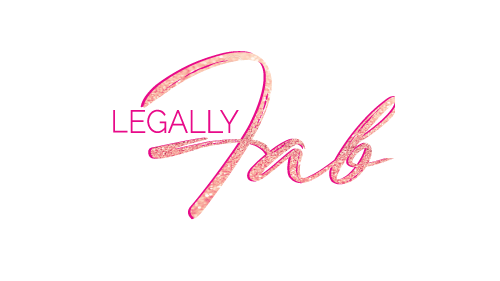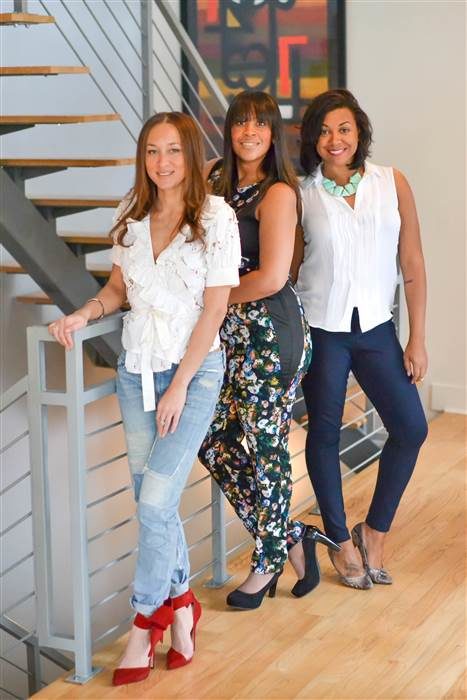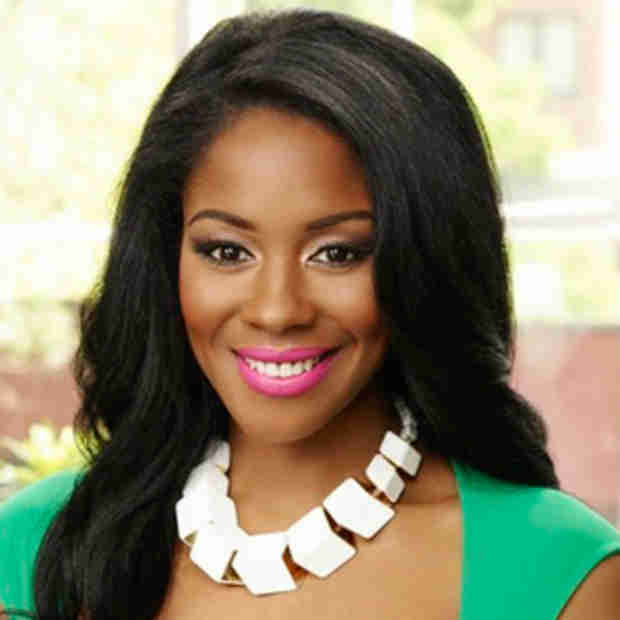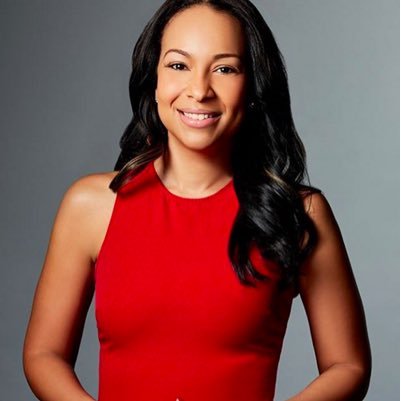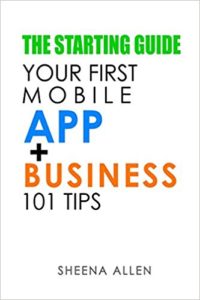In honor of Black History Month we celebrate Ericka Pittman. Bravo Television Star, one of the powerful women behind the Sean “Diddy” Combs empire and currently CMO of AQUAhydrate.
Ericka Pittman
Chief Marketing Officer
AQUAhydrate
As Chief Marketing Officer of AQUAhydrate, Ericka Pittman spearheads and oversees the company’s marketing and sales functions, while also developing and implementing the marketing strategy to meet revenue and profit goals. She brings more than 20 years of marketing experience to the organization, having produced successful strategic, brand building campaigns for some of the country’s largest media and consumer brands.
Prior to joining AQUAhydrate, Ericka was the Vice President of the Chairman’s Office at Combs Enterprises, where she was responsible for developing and streamlining business process and communication across all executive divisions. She was appointed by Mr. Sean “Diddy” Combs to lead the company’s Los Angeles office and served as an ambassador to business partners and the community on behalf of the Chairman and other company leadership.
Ericka joined Combs Enterprises in 2009 as Vice President of Brand Strategy at The Blue Flame Agency, overseeing brand strategy for all agency campaigns. She served as Vice President of Blue Flame, and Vice President of New Business for Combs Wine & Spirits. Ericka had previously spent 15 years working in interactive and publishing media, holding positions at iVillage.com; Honey, Heart & Soul, and Savoy Magazine (Vanguard Media Group); Baby Talk Magazine (Time Inc.); Glamour Magazine (Condé Nast); Vibe & Vixen Magazines (Vibe Media Group); and GIANT Magazine (Radio One Inc).
Amongst her successes, Ericka was an official cast mate of Bravo TV’s The Singles Project. She currently serves as a member of number of organizations including WEEN (Women In Entertainment Empowerment Network), National Association of Professional Women and Advertising Women of New York. She also lends her time and energy to a number of causes and other organizations, including Dress for Success and NFTE (Network for Teaching Entrepreneurship).
Ericka holds a Bachelor of Arts in Corporate Communications from Baruch College. Originally from Brooklyn, NY, she now resides in Los Angeles, CA.
Say hello to Ms. Jessica Tehlirian! Or you may know her as the beautiful Lawyer Bae on Instagram:) Jessica has used her social media presence to influence and inspire thousands of professional women especially those in the legal field to persevere in their careers while looking great while doing it! She is the definition of Legally Fab. Read below on tips on surviving the legal profession and follow her social media pages @lawyerbaes on the launch of her new blog!
Recognized by ESSENCE Magazine as a top 40 executive under 40, Valeisha Butterfield Jones has blazed a humanitarian and entrepreneurial trail for nearly two decades. Valeisha is married to 2016 NBA champion Dahntay Jones of the Cleveland Cavaliers and is mother of three. She is also the daughter of U.S. Congressman G. K Butterfield and N.C. State Legislator Jean Farmer Butterfield. Have an interest in community engagement or entertainment? Then read on!
1) Why did you choose your profession? Currently, I serve as the Head of Black Community Engagement for Google which is responsible for strengthening and deepening the technology giant’s affinity to the Black community globally. I am also the current Co-founder and CEO of the Women in Entertainment Empowerment Network. As a music fan, I was always intrigued by the business behind the art. While in college, I worked for a music company and quickly realized my passion. It was to serve as a conduit to bridge the gap between pop culture and social justice. In my 20-year career, I’ve been extremely blessed and intentional about working in my craft and doing what I love.
2) What is the favorite part of your job? Making a difference in people’s lives, especially being able to provide budget, capital and resources to important projects that move our culture forward. Also, being responsible for the career development and advancement of young women.
3) What is the most difficult part of your job? Not being able to support or fund every great idea. Making those tough decisions are hard, especially when you know the ideas are viable.
4) Who is your mentor (if any)? My mentor in Kevin Liles. He invested in me at the very beginning of my career and is responsible for helping me navigate professionally.
5) Best piece of advice for someone pursuing your field? Plan, but don’t hold yourself hostage to fake timelines. Run your own race, celebrate the small wins and play the long game. Consistency is key.
6) If you have not chosen this profession would have you chosen instead? There has never been a Plan B.
7) Favorite designer? Stella McCartney and Alaia
8) Favorite makeup brand? Bobbi Brown
9) Favorite hair care? Carol’s Daughter
10) Favorite skin brand? Kiehl’s
11) If you could only choose 5 items to put in your purse everyday, what would they be? iPhone, carmex, pink carat lip gloss (MAC), small hairbrush and first aid kit for the kiddies.
12) Free plug:)– Anything you would like our readers to know that you are selling or creating or philanthropic organizations you are apart of? My organization the Women in Entertainment Empowerment Network (WEEN) just celebrated its tenth anniversary. We’re a coalition of women and men committed to supporting, promoting and defending the positive portrayal of women in society. Please visit for more info: www.weenonline.org
Education (Schools Attended)
Clark Atlanta University
Certifications or Licenses
Life:)
Memberships
Women in Entertainment Empowerment Network, Co-founder and CEO
Hip Hop Sisters, Board Member
Awards
Ebony 100, 2012
Essence Top 40 under 40, 2012
Elle Magazine Top 20 Women to Watch
The Root 100, 2012 and 2016
100 Black Women
Instagram and Twitter Social Media Handle
@Valeisha
Official Website (if any)
We are one week in 2018. How are your New Years Resolutions going? Statistically half of all resolutions fail. Read on to make sure you do not become a statistic!
Your resolution may be wrong for one of the following three reasons:
- It’s a resolution created based on what someone else (or society) is telling you to change.
- It’s too vague.
- You don’t have a realistic plan for achieving your resolution.
Goal is another word for Resolution. Your goals should have a PLAN and be SMART. That’s an acronym coined in the journal Management Review in 1981 for specific, measurable, achievable, relevant and time-bound. It may work for management, but it can also apply to your resolutions, too.
- Specific. Your goal should be absolutely clear. “Making a concrete goal is really important rather than just vaguely saying ‘I want to lose weight.’ You want to have a goal: How much weight do you want to lose and at what time interval?” said Katherine L. Milkman, an associate professor of operations information and decisions at the Wharton School of the University of Pennsylvania.
- Measurable. This may seem obvious if your goal is a fitness or weight loss related one, but it’s also important if you’re trying to cut back on something, too. If, for example, you want to grow your hair. Take pictures of your hair at the beginning and throughout the year so you can really SEE the progress. Tracking you progress into a journal or making notes on your phone or in an app designed to help you track behaviors can reinforce the progress, no matter what your resolution may be.
- Achievable. Now this doesn’t mean that you can’t have big goals. However, trying to take too big a step too fast can leave you frustrated and likely lead to you failing. So, for example, resolving to save enough money to retire in five years when you’re 40 years old is probably not realistic, but saving an extra $100 a month may be.
- Relevant. Is this a goal that really matters to you, and are you making it for the right reasons? “If you do it out of the sense of self-hate or remorse or a strong passion in that moment, it doesn’t usually last long,” said Dr. Michael Bennett, a psychiatrist and co-author of two self-help books. Also if you are doing something because of family or societal pressures that also may not be the best thing for you. For example, are you trying to get married because society says you should be married by 30 and so you are willing to just settle for the next guy to come along? In the short term, you may meet your goal but on other hand spend a life time of misery with the wrong person.
- Time-bound. Create a realistic timeline and plan toward reaching your goal. That means giving yourself enough time to do complete your goal and setting intermediate smaller goals along the way to give yourself the motivation to keep going. “Focus on these small wins so you can make gradual progress,” Charles Duhigg, author of “The Power of Habit” and a former New York Times writer, said. “If you’re building a habit, you’re planning for the next decade, not the next couple of months.”
Comment below on your top resolution for this year and how you plan to reach it! 2018 is your year, I can feel it!:)
The phrase “unequally yoked” is a phrase most commonly found in the Bible ( 2 Corinthians 6:14 “Do not be bound together with unbelievers; for what partnership have righteousness and lawlessness, or what fellowship has light with darkness?”). However, I have found this to be true also in business relationships.
A yoke is a wooden bar that joins two oxen to each other and to the burden they pull. An “unequally yoked” team has one stronger ox and one weaker, or one taller and one shorter. The weaker or shorter ox would walk more slowly than the taller, stronger one, causing the load to go around in circles. When oxen are unequally yoked, they cannot perform the task set before them. Instead of working together, they are at odds with one another and they find themselves going into circles.
In short, just like in a personal relationship where the balance is “unequal”, a business relationship where partners do not share the same vision, work ethic or even risk will also be doomed from the very beginning. And just like the oxen you will find yourself going in circles with your business partner instead of making progress. I found myself in this position for two grueling years with a business partner and a friend who was the complete opposite of me. We literally had an argument every two weeks about our roles and eventually these arguments bled into the marketing strategy and the vision of the business. Two years and $2,000 later I realized we were just going in circles. I had to make the very difficult decision to cut my losses and quit while I was ahead so I did not invest any more money and time in the business. She was 70% owner of the business but I was doing 150% of the work even neglecting some of my other business ventures. That math was not adding up and I began to feel used and unappreciated. I realized my role was better suited a consultant versus a business partner and felt like a brick had been lifted from my shoulders when I terminated the partnership. I also felt like I could get my friend back. All we talked about was the business. This is obviously another topic, “Should you go into business with a friend?”, which I will explore in a future post.
At the end of the day time is money and unlike the latter you can not get time back. Before entering a partnership with a new business set clear goals and timelines in a business plan for your business to ensure you are on the same page. Last but not least, have an iron clad operating agreement that clearly stated the roles, obligations and responsibilities for each partner so that in case of a disagreement you can always point back to the paper! If all fails, the best advice I can give you is to be a sole proprietor of your business and just hire out consultants, contractors and interns to help execute you vision without having the burden of having to come to an agreement about every business decision you want to make.
What has been your worst experience with a business partner? Share your thoughts and comments below:)
3) What is the most difficult part of your job?
4) Who is your mentor (if any)?
5) Best piece of advice for someone pursuing your field?
6) If you have not chosen this profession would have you chosen instead?
7) Favorite designer?
8) Favorite makeup brand?
9) Favorite hair care?
10) Favorite skin brand?
11) If you could only choose 5 items to put in your purse everyday, what would they be?
12) Free plug:)– Anything you would like our readers to know that you are selling or creating or philanthropic organizations you are apart of?
Education (Schools Attended)
Instagram and Twitter Social Media Handle
Official Website (if any)
WHY WE LOVE IT
It’ officially Fall and almost Winter so you may already have a slew of boots in your wardrobe to choose from but a must have this season is the over-the-knee.
That’s right you have seen some of your favorite celebrities rocking this look flawlessly!
HOW TO WEAR IT
When most people think of thigh high boots they think Julia Roberts strutting her stuff down Hollywood Boulevard in my favorite movie Pretty Woman🙂 But thigh-high boots don’t have to scream prostitue. On the contrary, the right styling can leave you looking chic, sophisticated, and practical. They’re truly a closet gem as they can polish off a broad range of looks from mini to midi skirts, cuffed shorts, or skinny jeans.
Try pairing them with a short skirt or a dress to reveal a sexy sliver of skin and achieve a softer look than you would get when wearing stockings. If you decide to bare some leg, try to limit it to about three inches of thigh between your boot and bottoms.
They also jazz up an otherwise ordinary outfit, like your go-to jeans and a simple blouse. Just add a statement necklace or clutch and you’ve got a great outfit that you can wear from day to night.
Ready to try the look? Shop our “Suited and Booted” in black or red on the Legally Fab Shop!
What do you get when you combine a Olympic Athlete and Stethoscope? You get Dr. Kamali! Kamali Thompson is currently a MD/MBA Candidate at Rutgers Robert Wood Johnson Medical School and is on the road to the 2020 Olympics in Tokyo as a Team USA Sabre Fencing champion! Kamali is also studying to become a orthopedic sports medicine surgeon. Read below on tips on surviving the medical professional and the athletic world.
1) Why did you choose your profession?
I have wanted to become a doctor since I was a child going to the pediatrician. There was a certain satisfaction I received after visiting my doctor and knowing I was healthy and going to be okay. After completing my surgery rotation in medical school, I decided to become an orthopedic surgeon. I discovered I loved being in the operating room and would still be able to spend time with my patients during office hours.
2) What is the favorite part of your job?
This year I am doing research in the sports medicine division of orthopedic surgery. As a medical student, this is one of the most exciting years because I have finally found a specialty I am passionate about and I am spending 100% of my time learning about orthopedic surgery.
3) What is the most difficult part of your job?
As a medical student, the biggest challenge is maintaining a work life balance. It’s important that I learn everything possible both inside and outside the hospital, but it’s also important I have enough quality time with friends, family, and myself. Many students and doctors allow their work to fully consume their lives, but after my first two years of medical school I learned I needed emotional support to prevent burn out.
4) Who is your mentor (if any)?
I’m very lucky because I have several mentors. They all have been trailblazers in their careers, especially as African-American women.
5) Best piece of advice for someone pursuing your field?
The medical career path is an extremely long road. I would strongly suggest make sure you have a hobby to ensure you don’t lose yourself in all of your studying. I am also a competitor for the USA fencing team and am I constantly traveling all of over the world. This actually helps me with my studying because my schedule forces me to be more efficient and I stay in shape.
6) If you have not chosen this profession would have you chosen instead?
I would have just focused on my fencing career and been a full-time athlete.
7) Favorite designer? Zara, Laquan Smith
8) Favorite makeup brand? Fenty
9) Favorite hair care? The Mane Choice
10) Favorite skin brand? Nivea
11) If you could only choose 5 items to put in your purse everyday, what would they be?
Blistex, Colour Pop Matte Lipstick, NYC Metrocard, phone charger, Nivea hand lotion
12) Free plug:)– Anything you would like our readers to know that you are selling or creating or philanthropic organizations you are apart of?
I would love for readers to check out my education, fitness, and travel blog, Saber & A Stethoscope and follow my journey as a dual degree student on the road to the 2020 Olympics in Tokyo.
Education: Rutgers Robert Wood Medical School – MD Candidate, Rutgers Business School, MBA
Awards: Graduated Temple University, B.S. with honors
Fencing Accomplishments
➢ Division I Women’s Saber National Champion (2016)
➢ World University Games Team Member (2013)
➢ PNC Student Athlete of the Year (2011, 2012)
➢ Second Team All-American (2012)
➢ 4-Time NCAA qualifier (2008 – 2012)
Blog: Saber & A Stethoscope www.kamalithompson.com
IG: @dr.mali.mallz
Twitter: @Kamali_Thompson
One of the most essential components to creating happy, healthy and fulfilling relationships with friends, family and significant others is to become a master at setting boundaries. Simply put, boundaries are what set the space between where you end and the other person begins.
Unfortunately, it’s a skill that many of us don’t learn, according to psychologist and coach Dana Gionta, Ph.D. We might pick up pointers here and there from experience or through watching others. But for many of us, boundary-building is a relatively new concept and a challenging one. Often if we have had a parent, guardian or other person in our life during childhood who didn’t know how to set boundaries with us then we have to learn how to set boundaries in relationships. We have to learn when it is the proper time to set a boundary and how to find a balance in setting boundaries so they are not too weak or too strong.
Here are basic steps from Dr.Gionta to begin setting boundaries in your relationships:
1. Name your limits.
You can’t set good boundaries if you’re unsure of where you stand. So identify your physical, emotional, mental and spiritual limits, Gionta said. Consider what you can tolerate and accept and what makes you feel uncomfortable or stressed. “Those feelings help us identify what our limits are.”
2. Tune into your feelings.
Gionta has observed two key feelings in others that are red flags or cues that we’re letting go of our boundaries: discomfort and resentment. She suggested thinking of these feelings on a continuum from one to 10. Six to 10 is in the higher zone, she said.
If you’re at the higher end of this continuum, during an interaction or in a situation, Gionta suggested asking yourself, what is causing that? What is it about this interaction, or the person’s expectation that is bothering me?
Resentment usually “comes from being taken advantage of or not appreciated.” It’s often a sign that we’re pushing ourselves either beyond our own limits because we feel guilty (and want to be a good daughter or wife, for instance), or someone else is imposing their expectations, views or values on us, she said.
“When someone acts in a way that makes you feel uncomfortable, that’s a cue to us they may be violating or crossing a boundary,” Gionta said.
3. Be direct.
With some people, maintaining healthy boundaries doesn’t require a direct and clear-cut dialogue. Usually, this is the case if people are similar in their communication styles, views, personalities and general approach to life, Gionta said. They’ll “approach each other similarly.”
With others, such as those who have a different personality or cultural background, you’ll need to be more direct about your boundaries. Consider the following example: “one person feels [that] challenging someone’s opinions is a healthy way of communicating,” but to another person this feels disrespectful and tense.
There are other times you might need to be direct. For instance, in a romantic relationship, time can become a boundary issue, Gionta said. Partners might need to talk about how much time they need to maintain their sense of self and how much time to spend together.
4. Give yourself permission.
Fear, guilt and self-doubt are big potential pitfalls, Gionta said. We might fear the other person’s response if we set and enforce our boundaries. We might feel guilty by speaking up or saying no to a family member. Many believe that they should be able to cope with a situation or say yes because they’re a good daughter or son, even though they “feel drained or taken advantage of.” We might wonder if we even deserve to have boundaries in the first place.
Boundaries aren’t just a sign of a healthy relationship; they’re a sign of self-respect. So give yourself the permission to set boundaries and work to preserve them.
5. Practice self-awareness.
Again, boundaries are all about honing in on your feelings and honoring them. If you notice yourself slipping and not sustaining your boundaries, Gionta suggested asking yourself: What’s changed? Consider “What I am doing or [what is] the other person doing?” or “What is the situation eliciting that’s making me resentful or stressed?” Then, mull over your options: “What am I going to do about the situation? What do I have control over?”
6. Consider your past and present.
How you were raised along with your role in your family can become additional obstacles in setting and preserving boundaries. If you held the role of caretaker, you learned to focus on others, letting yourself be drained emotionally or physically, Gionta said. Ignoring your own needs might have become the norm for you.
Also, think about the people you surround yourself with, she said. “Are the relationships reciprocal?” Is there a healthy give and take?
Beyond relationships, your environment might be unhealthy, too. For instance, if your workday is eight hours a day, but your co-workers stay at least 10 to 11, “there’s an implicit expectation to go above and beyond” at work, Gionta said. It can be challenging being the only one or one of a few trying to maintain healthy boundaries, she said. Again, this is where tuning into your feelings and needs and honoring them becomes critical.
7. Make self-care a priority.
Gionta helps her clients make self-care a priority, which also involves giving yourself permission to put yourself first. When we do this, “our need and motivation to set boundaries become stronger,” she said. Self-care also means recognizing the importance of your feelings and honoring them. These feelings serve as “important cues about our wellbeing and about what makes us happy and unhappy.”
Putting yourself first also gives you the “energy, peace of mind and positive outlook to be more present with others and be there” for them.” And “When we’re in a better place, we can be a better wife, mother, husband, co-worker or friend.”
8. Seek support.
If you’re having a hard time with boundaries, “seek some support, whether [that’s a] support group, church, counseling, coaching or good friends.” With friends or family, you can even make “it a priority with each other to practice setting boundaries together [and] hold each other accountable.”
Consider seeking support through resources, too. Gionta likes the following books: The Art of Extreme Self-Care: Transform Your Life One Month at a Time and Boundaries in Marriage (along with several books on boundaries by the same authors).
9. Be assertive.
Of course, we know that it’s not enough to create boundaries; we actually have to follow through. Even though we know intellectually that people aren’t mind readers, we still expect others to know what hurts us, Gionta said. Since they don’t, it’s important to assertively communicate with the other person when they’ve crossed a boundary.
In a respectful way, let the other person know what in particular is bothersome to you and that you can work together to address it, Gionta said.
10. Start small.
Like any new skill, assertively communicating your boundaries takes practice. Gionta suggested starting with a small boundary that isn’t threatening to you, and then incrementally increasing to more challenging boundaries. “Build upon your success, and [at first] try not to take on something that feels overwhelming.”
Shop Fab – Most Popular
-
 Resting B Face Pillow
Rated 5.00 out of 5$29.99
Resting B Face Pillow
Rated 5.00 out of 5$29.99 -
 Girls Sweats
Rated 5.00 out of 5$39.99
Girls Sweats
Rated 5.00 out of 5$39.99 -
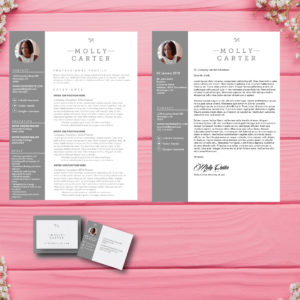 Career Grey Resume Kit with Biz Card (Molly)
$299.99
Career Grey Resume Kit with Biz Card (Molly)
$299.99
Shop Fab – Categories
- Accesories
- Black Lawyers Collection
- Clothing
- Courses
- Digital Product
- download
- E-book
- Fab Limited Collection
- FAB SHOP
- freebie
- Legal Form
- Little Black Dress
- Live Course
- Live event
- Mugs
- Outerwear
- Pillows
- Resume Kit
- Resume kit with resume review
- Resume Review
- Resume with Biz Card
- Services
- Think Pink
- Uncategorized
- White Collar
READ FAB
- CAREER (14)
- INSPIRATION (16)
- STYLE (7)
